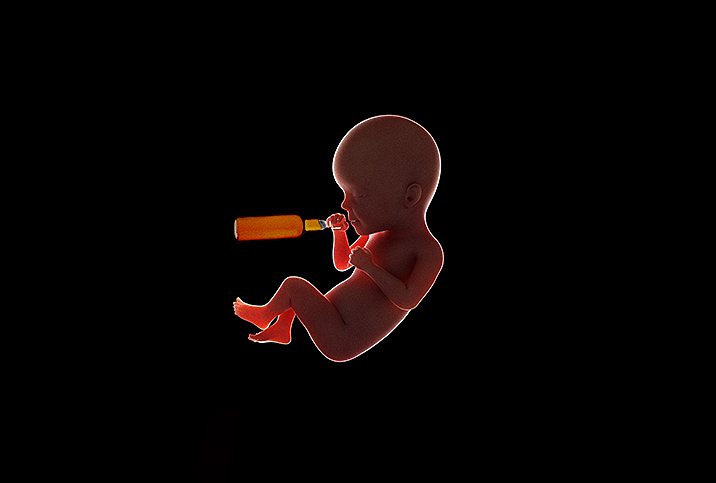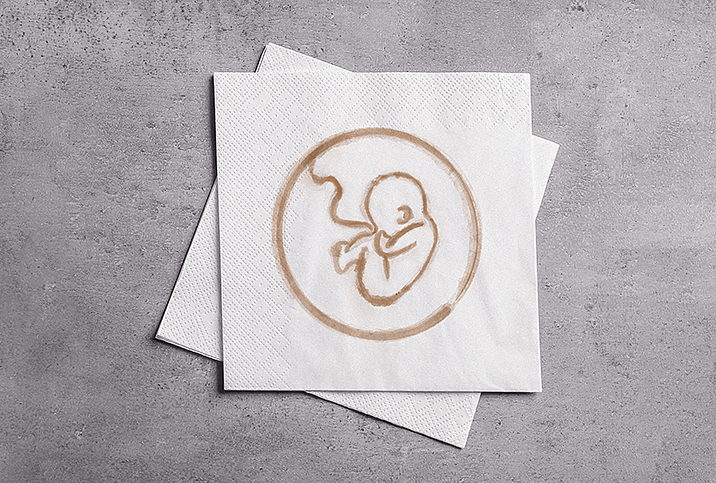Is Your Baby at Risk of Developing Fetal Alcohol Syndrome?

It is likely most women have heard of fetal alcohol syndrome (FAS) and know excessive drinking will negatively affect their pregnancy, not everyone is aware of exactly what the limits are to prevent their baby from developing this irreversible condition.
What is FAS?
According to the Mayo Clinic, “Fetal alcohol syndrome is a condition in a child that results from alcohol exposure during the mother's pregnancy. Fetal alcohol syndrome causes brain damage and growth problems. The ones caused by fetal alcohol syndrome vary from child to child, but defects caused by fetal alcohol syndrome are not reversible.”
The Centers for Disease Control and Prevention (CDC) defines fetal alcohol spectrum disorders (FASDs) as a group of conditions that can occur in a person whose mother drank alcohol during pregnancy. This can manifest as physical problems and issues with behavior and learning. FASDs encompass patients with fetal alcohol syndrome and others affected by prenatal alcohol exposure who do not meet the full criteria for FAS.
Is any amount of alcohol ok?
When a pregnant woman consumes alcohol during pregnancy, it is passed via the umbilical cord to the baby. No amount or type of alcohol is considered safe enough to prevent fetal alcohol syndrome. There is a popular myth that it’s safe to consume one glass of wine per week while pregnant, but doctors advise against this.
Doctors also recommend avoiding alcohol before conception, as there is no established amount or timing that is considered safe. So, if you’re trying to get pregnant, it’s best to eliminate alcohol from your diet starting now.
No one knows why a small amount of alcohol affects one woman’s baby and not another. There are no physical or socioeconomic markers that definitively indicate one child is more likely to be affected by prenatal alcohol exposure than another. Because of this, it’s best to avoid the risk all together.
What are the symptoms of fetal alcohol syndrome?
Signs and symptoms of fetal alcohol syndrome are many and varied. They range from low body weight to major complications with the heart, kidney and bones.
According to the CDC, babies on the most involved end of the FASD spectrum have central nervous system and growth problems as well as minor facial features. This often manifests in their behavior, memory, attention span, vision or hearing.
Alcohol-related neurodevelopmental disorder (ARND) may manifest as intellectual disabilities and problems with learning abilities and behavior. This often negatively impacts performance in school (specifically math), memory, attention span, judgment and impulse control. Alcohol-related birth defects (ARBD) manifest as problems with the heart, kidney, bones or hearing.
I think my child may have FAS. What happens now?
If you are concerned your child may have fetal alcohol syndrome or fetal alcohol spectrum disorder, the first step is speaking with your child’s pediatrician. After ruling out other medical conditions, your doctor will then refer you to a specialist who can provide a diagnosis.
The process of receiving an FASD diagnosis has multiple steps and may include your pediatrician, a specialist, child psychologist and other therapists. After diagnosis, you will receive a documented plan for treatment and support. It is important to know support services for FASD are available.
Fetal alcohol syndrome is not reversible but it is 100 percent preventable. Taking the appropriate measures to eliminate alcohol before and during pregnancy will prevent your child from developing FAS.


















